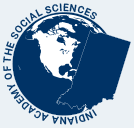
Abstract
Indigenous Americans living with type 2 diabetes in urban areas like Chicago face significant challenges to meeting the care recommendations of their medical providers. Based upon mixed-methods research, including both qualitative and quantitative measures, in Chicago’s Indigenous community, I have found that diabetes-care and -prevention challenges faced by individuals in this community include (1) the high financial and time costs of care, (2) lack of recognition of or response to acute symptoms of high glucose levels, (3) prioritization of other life responsibilities, (4) distrust of western medicine, and (5) fatalistic views about diabetes development and prognosis. If we are to reduce rates of type 2 diabetes and its related complications in Indigenous American populations, we need to reframe our view of who Indigenous peoples are and what the type 2 diabetes epidemic means in these communities, and consider how to best develop solutions for care that are feasible in urban settings. This aim can be achieved through a greater awareness of the challenges faced by urban Natives caring for type 2 diabetes and by engaging with these communities to develop collaborative programs to improve care in these settings.
Recommended Citation
Pollak, Margaret
(2020)
"Diabetes Care in an Urban Indigenous American Community: Challenges and Suggestions for the Future,"
Midwest Social Sciences Journal: Vol. 23:
Iss.
1, Article 8.
DOI: https://doi.org/10.22543/0796.231.1029
Available at:
https://scholar.valpo.edu/mssj/vol23/iss1/8
Included in
Anthropology Commons, Business Commons, Criminology Commons, Economics Commons, Environmental Studies Commons, Gender and Sexuality Commons, Geography Commons, History Commons, International and Area Studies Commons, Political Science Commons, Psychology Commons, Urban Studies and Planning Commons


